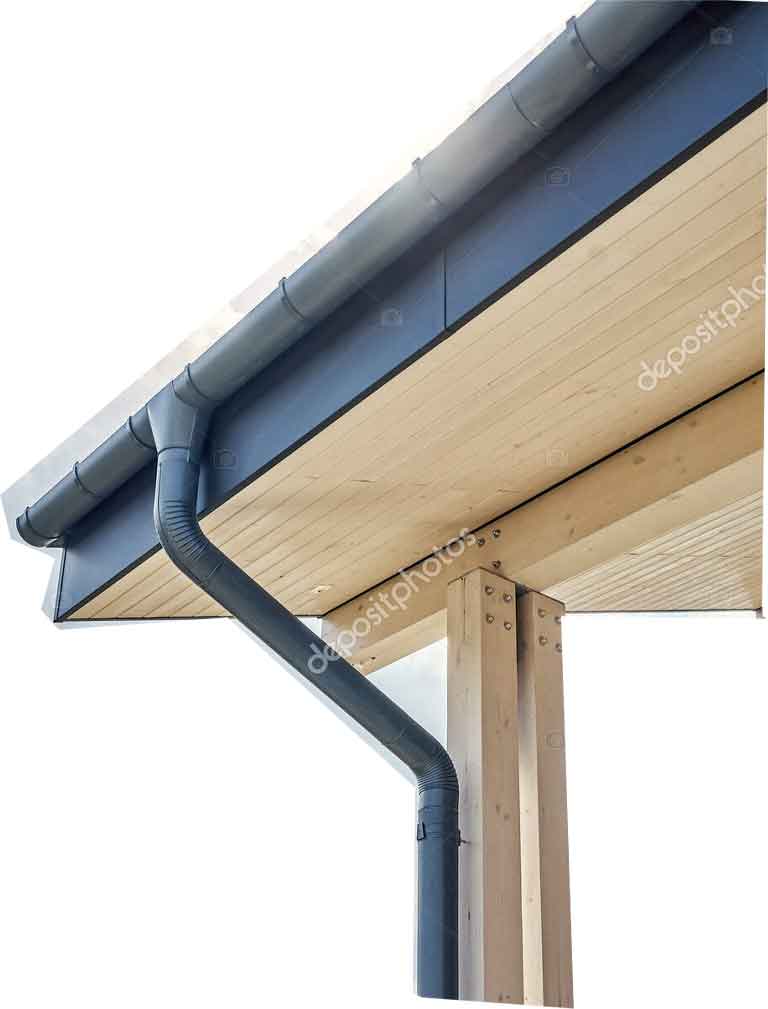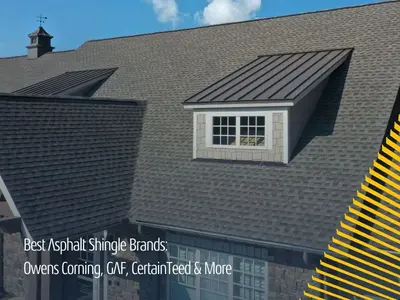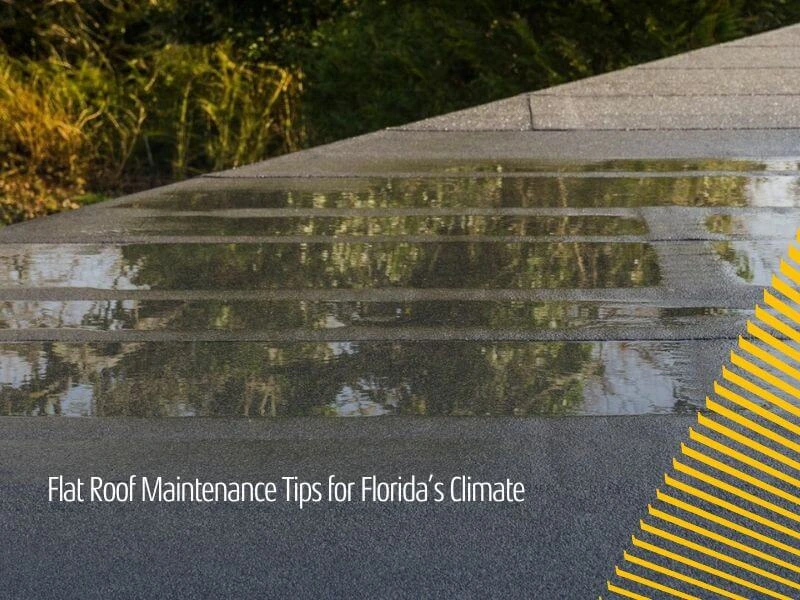To replace your roof successfully, you need to choose the right roofing contractor, select the best roofing material, understand roof replacement costs, and prepare your home before the installation. This comprehensive guide to roof replacement gives homeowners the steps, tips, and insights needed for a smooth and successful roof replacement project.

Why Roof Replacement Is Necessary
Every roof has a lifespan. For most homeowners, the need for roof replacement comes down to age, visible roof problems, or structural issues with the old roof. If your roof is more than 20 years old, shingles are curling, or leaks have developed, it’s a clear sign that replacing a roof is the best long-term solution.
A roof is one of the most important investments for protecting your home. Beyond preventing water damage, a new roof ensures that your entire roof system works efficiently, keeping your home insulated, ventilated, and secure. A roof replacement may also be required after storms, when damage to the roof structure or roof deck compromises the integrity of your roof.
Understanding the Roof Replacement Process
For a homeowner, the roof replacement process can feel overwhelming. A full replacement requires careful planning, experienced roofing, and the right roofing contractor to ensure a successful roof installation.
The process usually begins with a roof inspection, where a roofing professional evaluates the condition of your roof. They’ll inspect your roof deck, roof structure, shingles or other roofing materials, and the perimeter of the roof. If damage to the roof is extensive, they will recommend a new roof replacement rather than a roof repair.
Next comes material selection, tearing off the old roof, making repairs to the roof deck, and installing a new roof system. The process ends with a cleanup and a free roof inspection to ensure that the entire roof system is properly installed.
How to Choose the Right Roofing Contractor
Hiring a roofing contractor is one of the most important steps in any roof replacement project. A professional roofing contractor should be licensed, insured, and have years of experience with residential roof replacement.
When you’re evaluating a roofing company, look at customer reviews, certifications, and examples of completed roofing projects. The right contractor should offer a free roof inspection, provide clear roof replacement costs, and be transparent about the roof replacement process.
Choosing the right roofing contractor also ensures that your roof installation follows local building codes and best practices. An experienced roofing contractor will know how to measure your roof, identify the condition of your roof, and ensure that your new roof is built to last.
Common Roofing Materials for Your Home

Your roof material is one of the biggest factors in roof replacement costs and the lifespan of your roof. Common roofing materials include:
- Asphalt Roofing: A popular and cost-effective option for homeowners, asphalt roofing offers durability and a variety of styles.
- Metal Roof: Known for energy efficiency and long life, a metal roof can last 40–70 years and withstand harsh weather conditions.
- Shingle Roof: Asphalt shingles remain the most common roof shingle type, providing versatility, color options, and a solid lifespan.
- Tile or Slate: Premium roofing products that enhance curb appeal and provide superior longevity.
Choosing the right roofing material you choose depends on the type of roofing material that fits your budget, the condition of your roof, and your design preferences.
How Much Does Roof Replacement Cost in Florida?
Replacing your roof is one of the most significant home investments you’ll make. In Florida, prices in 2025 vary widely, depending on roof size, complexity, and materials, but here’s what you can expect:
- Standard asphalt shingle homes (common single-story, ~1,700 sq. ft.) typically cost $12,000–$18,000.
- Premium architectural shingles may raise that to $11,200–$17,100.
- Metal roofing, valued for storm resistance and longevity, ranges between $15,000 and $30,000.
- Tile roofing, often used in upscale or coastal homes, runs from $20,000 to $50,000, depending on design and roof complexity.
On average, Florida homeowners in 2025 spend between $8,000 and $15,000 for full roof replacement, though complex jobs can push final costs to $20,000–$30,000+. Roofing professionals in Florida report an average shingle roof replacement cost of around $13,000.
Factors like roof size, steep pitch, skylights, or the need for deck repairs can increase costs significantly. Local building codes, licensing fees, and permit costs can add even more due to Florida’s strict hurricane standards
Homeowners should always request a detailed estimate that breaks down labor, materials, and debris removal. Remember, the life of your roof is tied to quality installation, so choosing the cheapest bid is not always the best approach.
Preparing Your Home for Roof Replacement
A new roof replacement requires preparation to ensure the project goes smoothly. Here are practical steps:
- Relocate vehicles: Move cars away from the driveway to give roofers space.
- Protect belongings: Cover attic items and remove wall decorations.
- Notify neighbors: Let them know that a roofing project is scheduled.
Preparing your home before replacing the roof helps prevent disruptions and ensures that the roofing crews can stay on schedule.
The Role of Roof Inspections Before and After Replacement
A roof inspection is crucial before starting the roof replacement project. This inspection helps identify roof problems, measure your roof accurately, and confirm whether roof replacement is necessary or a roof repair will suffice.
After your new roof is installed, another inspection ensures the integrity of your roof. Roofing project managers will confirm that the entire roof system is correctly installed, that the roofing nails are properly secured, and that the edge of the roof is finished correctly.
Regular inspections also help maintain your roof after installation, allowing you to address roof problems before they become major issues.
DIY Roof Repairs vs. Professional Roof Replacement

Many homeowners wonder if they can tackle a roof repair or even a diy roof project themselves. While small repairs, like replacing a missing shingle, can sometimes be handled by a homeowner, replacing the entire roof requires a professional roofing contractor.
DIY roof repair carries risks. Roofing materials are heavy, working on a sloped roof is dangerous, and installing a new roof system requires technical expertise. For most homeowners, hiring a roofing company is the safest way to ensure that roof replacement is done correctly and that the lifespan of your roof is maximized.
How to Maintain Your Roof After Replacement
A roof replacement project doesn’t end once your new roof is installed. Proper roof maintenance is essential for extending the life of your roof.
Homeowners should:
- Inspect your roof twice a year and after storms.
- Clean gutters to prevent water damage.
- Remove debris from the edge of the roof and roof deck.
- Schedule a free roof inspection from your roofing company annually.
Maintaining your roof not only prevents roof problems but also ensures that your roof warranty remains valid.
Roof Warranties: What Homeowners Need to Know
A roof warranty provides peace of mind that your investment is protected. Warranties may cover roofing products (materials), workmanship, or both.
When you replace your roof, make sure you understand the terms of the roof warranty, including the length of coverage, what conditions may void it, and how to maintain your roof to keep it valid.
A roofing company should always explain your roof warranty and provide documentation. Knowing the details helps you avoid costly repairs in the future.
Compare Roof Material Options With SmartQuote
Your roof should protect your home and fit your style. With SmartPRO, you can compare premium materials like tile, metal, and asphalt shingles. With SmartQuote, you’ll see real pricing for each option before making a decision.
Compare Roof Material Options with SmartQuote and find the perfect fit for your home today.
FAQs
How long does a roof replacement take?
Most residential roof replacements are completed in 2–5 days, depending on the size of your roof and weather conditions.
How often should a roof be replaced?
The lifespan of your roof depends on the roofing material you choose. Asphalt shingles last 20–30 years, while a metal roof can last 50+ years.
Can I replace my roof myself?
While some homeowners attempt a diy roof project, replacing a roof is complex and dangerous. Hiring a professional roofing contractor is recommended.
What signs indicate I need a roof replacement?
Signs of roof problems include curling shingles, roof leaks, roof stains inside your home, or visible damage to the roof structure.











